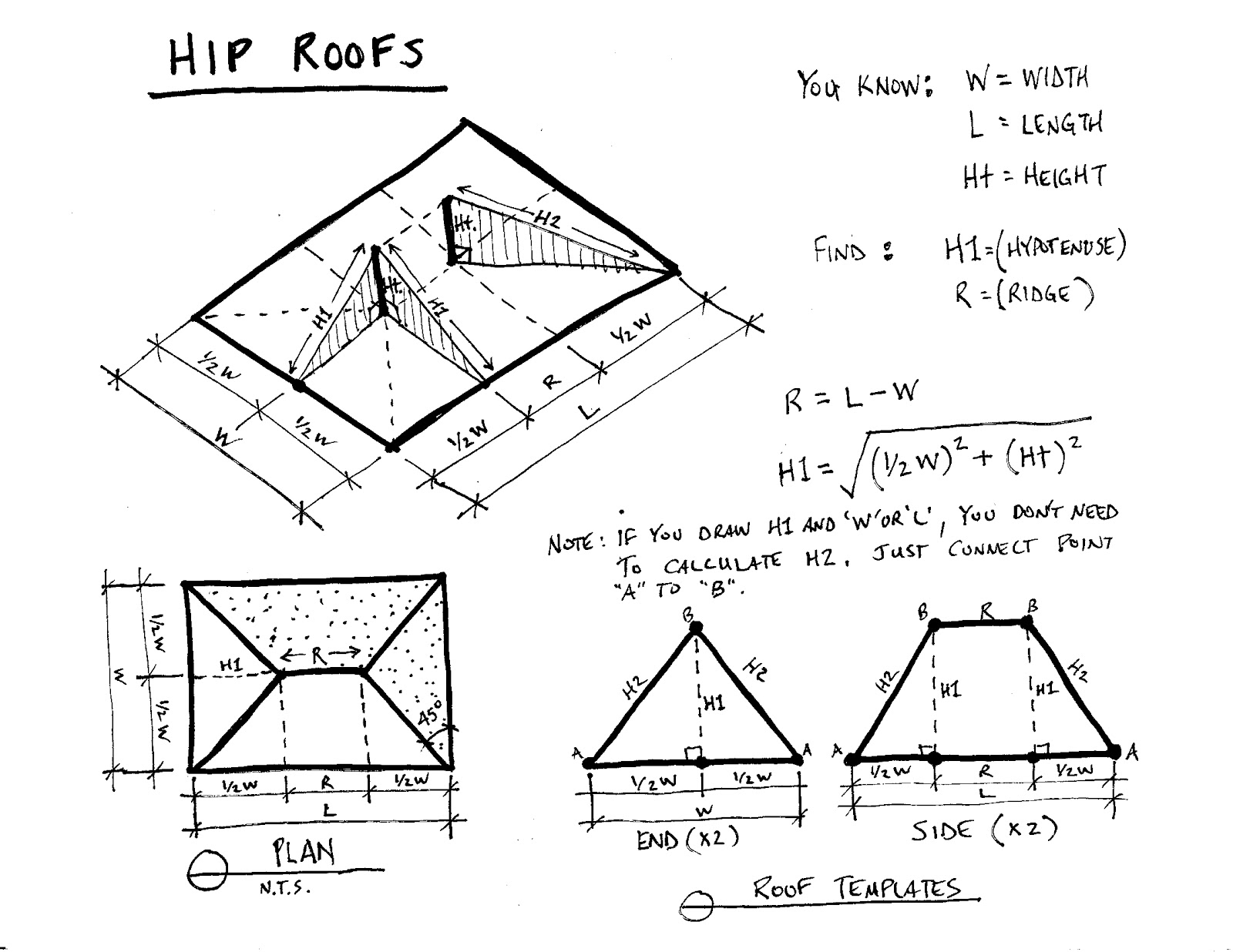What are Hip Roofs: Unveiling the Secrets of These Architectural Marvels
Ever driven down a street and felt a strange sense of architectural envy? Maybe it was the house with the roof that seemed to just... *flow*? You know, the one that looked like it could withstand a hurricane, but also whispered "sophisticated garden party." Chances are, you were looking at a hip roof.
Now, before you think this is just another boring construction term, let's break it down. We're talking about a roof design that's been around for centuries, gracing everything from ancient Chinese temples to sleek, modern homes.
So, what makes hip roofs so special? Why are architects and homeowners alike still drawn to this timeless design? And more importantly, what exactly *is* a hip roof?
A hip roof, in the simplest terms, is a roof where all sides slope downwards to meet the walls. Unlike their more common cousin, the gable roof (you know, the one with the triangular shape), hip roofs don't have any flat, vertical sides. Instead, they boast a continuous, sloping surface that wraps around the entire building. This gives them a sleek, streamlined appearance, but the benefits go way beyond aesthetics.
The history of hip roofs is a journey across continents and through time. From the steeply pitched hip roofs of ancient China, designed to withstand heavy snow loads, to the elegant hipped roofs of European manor houses, this style has adapted and evolved to suit a variety of climates and architectural styles. And it's not just a relic of the past. Hip roofs are experiencing a resurgence in popularity, embraced by modern architects for their clean lines, durability, and energy efficiency.
Advantages and Disadvantages of Hip Roofs
Like any architectural element, hip roofs come with their own set of pros and cons:
| Advantages | Disadvantages |
|---|---|
| Stronger in high winds | More complex to build |
| Better drainage | Can be more expensive |
| More stable and durable | Less attic space |
| Aesthetically pleasing | Not ideal for very cold climates (snow accumulation) |
Best Practices for Hip Roofs
If you're considering a hip roof for your next project, here are some essential best practices to keep in mind:
- Hire an experienced roofer: Hip roofs are more complex to build than gable roofs, so it's crucial to work with a qualified and experienced professional.
- Choose the right materials: The materials you choose for your hip roof will impact its durability, longevity, and overall aesthetic. Consult with your architect or roofer to determine the best options for your climate and budget.
- Ensure proper ventilation: Proper ventilation is essential for any roof, but it's especially important for hip roofs due to their enclosed design.
- Consider energy efficiency: Hip roofs can be very energy efficient, especially when paired with proper insulation and ventilation.
- Regular maintenance is key: Like any roof, hip roofs require regular maintenance to ensure their longevity.
Common Questions About Hip Roofs
Let's address some frequently asked questions about hip roofs:
- Q: Are hip roofs more expensive?
A: Generally, yes. The complex design requires more materials and labor.
- Q: Are hip roofs good in hurricanes?
A: Absolutely! Their aerodynamic shape makes them incredibly wind resistant.
- Q: Can a hip roof have a dormer?
A: Yes, dormers can be incorporated into hip roofs for added light and space.
Tips and Tricks for Hip Roofs
Here are a few extra insights for those considering a hip roof:
- Consider a combination roof: Blend hip and gable elements for a unique look.
- Maximize curb appeal: Hip roofs lend themselves well to various architectural styles, so get creative with your design!
In conclusion, hip roofs are more than just a stylish architectural choice. They represent a blend of functionality, durability, and timeless elegance. While they might require a bit more upfront investment, the long-term benefits in terms of strength, energy efficiency, and sheer curb appeal make them a worthwhile consideration for any homeowner or builder. So, the next time you're admiring a house with a roof that seems to defy gravity and exude sophistication, remember: it might just be the allure of the hip roof speaking to you.

Understanding Roof Shapes for Insurance | Kennecott Land

Hip Roof Porch With House Plans Karenefoley Porch And Chimney Ever | Kennecott Land

Types Of Home Roof Styles | Kennecott Land

5 Hip Roof Types & Styles (Plus 20 Photo Examples of Houses with a | Kennecott Land

Hip Roof House Designs | Kennecott Land

How do you measure the pyramid of a hip roof? | Kennecott Land

what are hip roofs | Kennecott Land

How To Build A Hip Roof | Kennecott Land

A History of the Hip Roof | Kennecott Land

what are hip roofs | Kennecott Land

Triple Eave Chinese sweeping roof. Traditional hip roofs with a | Kennecott Land

Hip Roofs: Pros, Cons, Installation Tips, Buying Guide (2023) | Kennecott Land

15 Types of Roof Styles | Kennecott Land

Hip Roofs: Pros, Cons, Installation Tips, Buying Guide | Kennecott Land

what are hip roofs | Kennecott Land